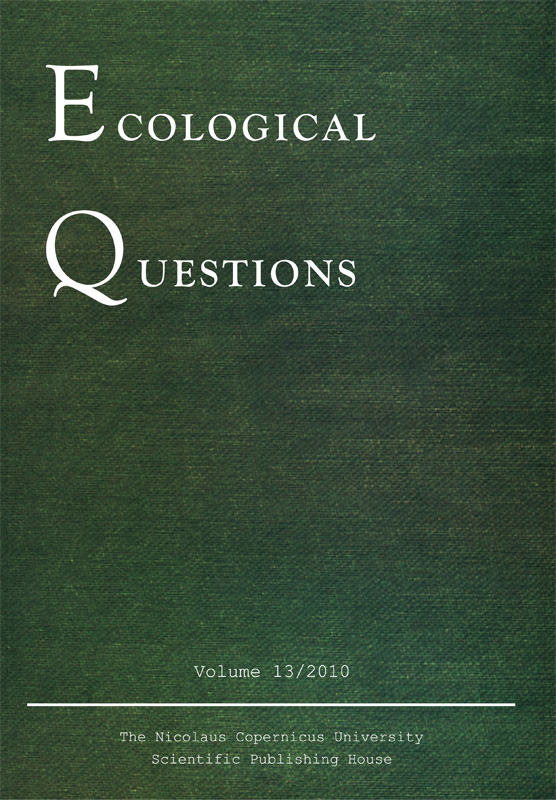The Great Exaptation. Around the fundamental idea of evolutionary psychology
DOI:
https://doi.org/10.12775/v10090-011-0050-3Keywords
adaptationist programme, cognitive processes, evolution of human mindAbstract
The subject of this article is to study the critique of the adaptationist programme in the evolutionary psychology. I focus on the issue how the notions of “spandrel” and “exaptation”, first introduced to evolutionary biology by S. J. Gould, R. Lewontin and E. Vrba, were then applied to the field of evolutionary psychology and to more broadly evolution of human cognitive processes. My aim is to show, that these terms are differently applied to various kinds of investigations in the field of the evolution of human mind. I show that not only the orginal definitional issues are problematic but also the application of these terms to evolution of human mind can be confusing. I try to put the main issues in order on that matter and propose the solutions to these confusions. I propose the methodological assumptions that should be accepted to the theory of spandrels and exaptations.References
Buss D. M., 1995, Evolutionary psychology: A new paradigm for psychological science, Psychological Inquiry 6: 1-30. http://gateway.webofknowledge.com/gateway/Gateway.cgi?GWVersion=2&SrcApp=PARTNER_APP&SrcAuth=LinksAMR&KeyUT=000253095500005&DestLinkType=FullRecord&DestApp=ALL_WOS&UsrCustomerID=b7bc2757938ac7a7a821505f8243d9f3. DOI: http://dx.doi.org/10.1207/s15327965pli0601_1
Buss D. M., Haselton M. G., Shackelford T. K., Bleske A. L. & Wakefield J. C., 1998, Adaptations, Exaptations, and Spandrels, American Psychologist 53(5): 533-548. DOI: http://dx.doi.org/10.1037/0003-066X.53.5.533
Chomsky N. et al., 2002, The faculty of language: what is it, who has it, and how did it evolve?, Science 298: 1569-157. http://gateway.webofknowledge.com/gateway/Gateway.cgi?GWVersion=2&SrcApp=PARTNER_APP&SrcAuth=LinksAMR&KeyUT=000298176900008&DestLinkType=FullRecord&DestApp=ALL_WOS&UsrCustomerID=b7bc2757938ac7a7a821505f8243d9f3
Darwin Ch., 1874; 2007, The Descent of Man, First published in 1874, Republished by Forgotten Books (http://www.forgottenbooks.org/info/9781605062815).
Dennett D. C., 1995, Darwin’s dangerous idea, Simon & Schuster, New York.
Gould S. J., 1991, Exaptation: A Crucial Tool for an Evolutionary Psychology, Journal of Social Issues 47(3): 43-65. DOI: http://dx.doi.org/10.1111/j.1540-4560.1991.tb01822.x
Gould S. J., 1997, The exaptive excellence of spandrels as a term and prototype, Proceedings of the National Academy of Sciences 94: 10750-10755.
Gould S. J. & Lewontin R., 1979, The spandrels of San Marco and the Panglossian paradigm, Proceedings of the Royal Society of London, Series B, 205: 581-598.
Gould S. J. & Vrba E. S., 1982, Exaptation: A missing term in the science of form, Paleobiology 8(1): 4-15.
Levitin D., 2006, This Is Your Brain on Music: Understanding a Human Obsession, Dutton Adult (Penguin), New York. http://gateway.webofknowledge.com/gateway/Gateway.cgi?GWVersion=2&SrcApp=PARTNER_APP&SrcAuth=LinksAMR&KeyUT=000250395000023&DestLinkType=FullRecord&DestApp=ALL_WOS&UsrCustomerID=b7bc2757938ac7a7a821505f8243d9f3
McKay R. & Dennett D. C., 2009, The evolution of misbelief, Behavioural and Brain Sciences 32: 493-561. http://gateway.webofknowledge.com/gateway/Gateway.cgi?GWVersion=2&SrcApp=PARTNER_APP&SrcAuth=LinksAMR&KeyUT=000274676100001&DestLinkType=FullRecord&DestApp=ALL_WOS&UsrCustomerID=b7bc2757938ac7a7a821505f8243d9f3
Pinker S., 1997, How the mind works, W. W. Norton & Company, New York.
Schacter D. L., 2001, The seven sins of memory: how the mind forgets and remembers, Houghton Mifflin, New York.
Sherry D. F. & Schacter D. L., 1987, The Evolution of Multiple Memory Systems, Psychological Review 94(4): 439-454. DOI: http://dx.doi.org/10.1037/0033-295X.94.4.439
Trivers R., 2000, The elements of a scientific theory of self-deception, Annals of the New York Academy of Sciences 907: 114-131.
Trivers R. L., 2006, Foreword to Richard Dawkins’ TheSelfish Gene, [in:] The selfish Gene: 30th anniversary edition (pp. XIX-XX), Oxford University Press Oxford.
Van Leeuwen D. S. N., 2007, The spandrels of self-deception, Philosophical Psychology 20(3): 329-348. http://gateway.webofknowledge.com/gateway/Gateway.cgi?GWVersion=2&SrcApp=PARTNER_APP&SrcAuth=LinksAMR&KeyUT=000303013000007&DestLinkType=FullRecord&DestApp=ALL_WOS&UsrCustomerID=b7bc2757938ac7a7a821505f8243d9f3. DOI: http://dx.doi.org/10.1080/09515080701197148
Van Leeuwen D. S. N., 2007, The product of self-deception, Erkenntnis 67: 419-437. http://gateway.webofknowledge.com/gateway/Gateway.cgi?GWVersion=2&SrcApp=PARTNER_APP&SrcAuth=LinksAMR&KeyUT=000249969500004&DestLinkType=FullRecord&DestApp=ALL_WOS&UsrCustomerID=b7bc2757938ac7a7a821505f8243d9f3
Van Leeuwen D. S. N., 2008, Finite rational self-deceivers, Philos. Stud. 139: 191-208. http://gateway.webofknowledge.com/gateway/Gateway.cgi?GWVersion=2&SrcApp=PARTNER_APP&SrcAuth=LinksAMR&KeyUT=000255256700004&DestLinkType=FullRecord&DestApp=ALL_WOS&UsrCustomerID=b7bc2757938ac7a7a821505f8243d9f3
Downloads
Published
How to Cite
Issue
Section
Stats
Number of views and downloads: 2114
Number of citations: 0



